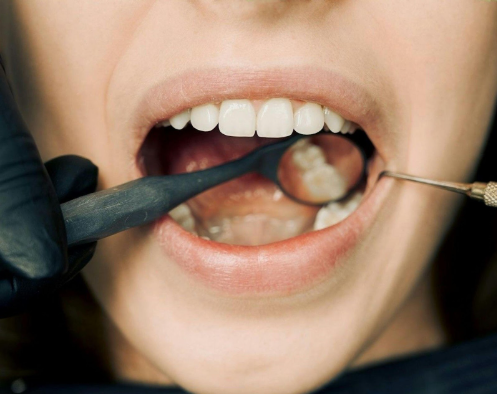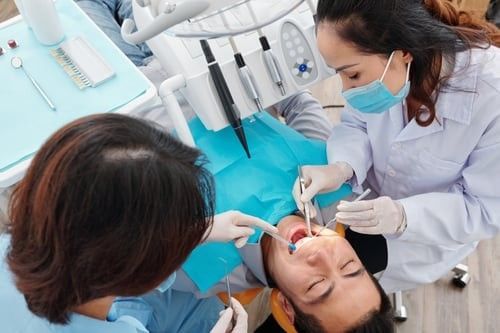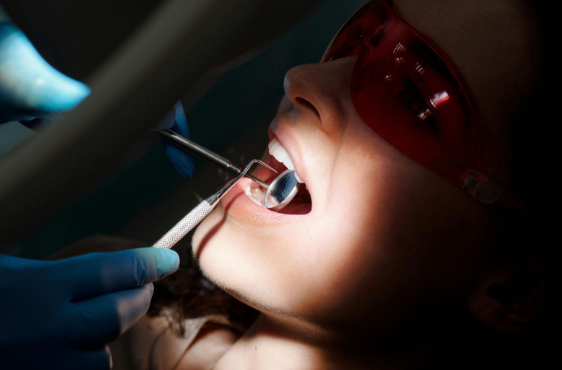Gateway Family Dental Blog
Does Genetics Affect Cavities?

Cavities, or dental caries, are among the most common oral health issues worldwide. While poor dental hygiene and dietary habits are often blamed, some people wonder if genetics play a role in their likelihood of developing cavities.
Let’s explore the connection between genetics and cavities, offering an insightful look at how nature and nurture combine to influence oral health.
What Are Cavities?
Cavities occur when bacteria in the mouth produce acid that erodes tooth enamel. This process is usually triggered by consuming sugary or starchy foods, which fuel bacterial activity. Over time, the acid weakens the enamel, leading to small holes in the teeth. Without treatment, these holes can expand and cause pain, infection, or tooth loss.
Traditional factors associated with cavities include poor oral hygiene, a sugary diet, and a lack of
regular dental care. However, some people seem more prone to cavities even when they maintain good oral hygiene. This has led researchers to investigate the role of genetics in cavity formation.
How Genetics May Influence Cavity Risk
Genetics may influence cavity susceptibility through several pathways, including enamel strength, saliva composition, and immune response:
Enamel Strength and Composition
The enamel is the hard outer layer of the teeth that protects them from decay. Its strength and structure vary between individuals, often due to genetic differences. Certain genetic variations may result in thinner or weaker enamel, making it more vulnerable to acid attacks.
For instance, genes like AMELX, which influence enamel formation, are integral in determining enamel quality. Mutations or variations in these genes can lead to enamel defects, increasing the likelihood of cavities even in those with good dental care practices.
Saliva’s Role in Preventing Cavities
Saliva is a natural defense mechanism that helps wash away food particles, neutralize acids, and provide minerals to strengthen enamel. The composition and quantity of saliva are partially determined by genetics.
Genes associated with saliva production, such as AQP5 and LTF, can affect its quality and protective capabilities. Some people may produce less saliva or saliva with lower antimicrobial properties, exposing their teeth to decay-causing bacteria.
Immune Response to Oral Bacteria
The immune system plays a critical role in controlling bacterial populations in the mouth. Genetics can influence how the body responds to these bacteria, either helping to maintain a healthy balance or allowing harmful bacteria to thrive.
Variations in genes related to immune function, such as IL1 and TNF, can impact the inflammatory response to oral bacteria. Despite proper dental hygiene, an overactive or underactive immune response can create an environment conducive to cavity formation.
Environmental and Lifestyle Factors
While genetics can influence cavity risk, so too do environmental and lifestyle factors. Diet, oral hygiene habits, and access to dental care often interact with genetic predispositions to determine overall oral health.
For example, someone with genetically weaker enamel may still avoid cavities by practicing excellent oral hygiene and limiting sugar consumption. Conversely, an individual with strong enamel may develop cavities if they neglect their dental care or consume a high-sugar diet.
The Role of Family History
Family history can be a useful indicator of cavity risk. If multiple family members experience frequent cavities, there may be a genetic predisposition at play. However, shared environmental factors, such as dietary habits and oral hygiene practices, can also contribute to this trend.
Parents pass both their genes and their habits to their children. Teaching good oral care from a young age can help mitigate the effects of genetic predispositions.
Research on Genetics and Cavities
Scientific studies have increasingly explored the genetic basis of dental health. Researchers have identified several genes linked to cavity risk and are working to understand how these genetic factors interact with lifestyle choices.
The findings suggest that personalized dental care based on genetic profiles could become a reality in the future. Understanding one’s genetic risk could help individuals take targeted preventive measures to protect their oral health.
Managing Cavity Risk Despite Genetics
While genetics may predispose some people to cavities, there are ways to reduce the risk and maintain healthy teeth. Regular brushing and flossing, fluoride treatments, and professional dental cleanings are important for everyone, regardless of their genetic makeup.
For those with a genetic predisposition, additional preventive measures may be helpful. These include using enamel-strengthening toothpaste, maintaining a diet low in sugar and starch, and visiting the dentist more frequently for check-ups and treatments.
Parents with a family history of cavities should pay extra attention to their
children’s oral health. Establishing good habits early can help offset any genetic disadvantages.
At
Gateway Family Dentistry, your smile is our priority. Our compassionate team is dedicated to providing personalized care for patients of all ages so that your family’s oral health stays in top condition. Whether you need routine cleanings, advanced treatments, or cosmetic enhancements, we’re here to help you achieve a confident, healthy smile.
Schedule your appointment today and experience the difference of expert dental care in a welcoming environment!




